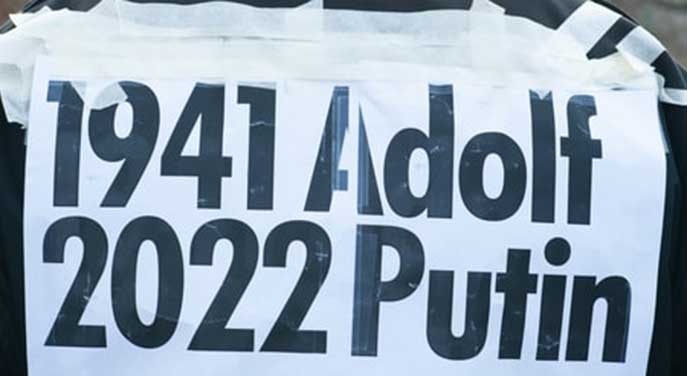 Evil was a very real concept when I was a child. Orthodox Catholic opinion in the Ireland I grew up in believed evil was personified by the devil. And the devil wasn’t just a metaphor but a real live entity.
Evil was a very real concept when I was a child. Orthodox Catholic opinion in the Ireland I grew up in believed evil was personified by the devil. And the devil wasn’t just a metaphor but a real live entity.
My grandmother’s house in rural County Cork had a religiously-themed image hanging on one of the bedroom walls. In it, a man on his death bed was about to be claimed by Satan. Having lived a sinful life, he was en route to paying his eternal dues.
Lurid as it was, the picture expressed a stark perspective on the world. There was good and there was evil, with little or no equivocation or nuance about the distinction. And real consequences were appropriate for evildoers.
This mindset extended beyond concerns about eternal life. While Ireland had its distinct peculiarities, mainstream opinion in most of the Western world wasn’t much confused about good guys and bad guys.
In the Cold War, the Soviets were bad and the West was virtuous. There were, of course, dissenters, but mainstream views were reasonably unambiguous.
Criminals, too, were clearly in the wrong. Rather than being misunderstood or victims of unfortunate circumstances, they were responsible for their own aberrant behaviour and thus deserved whatever consequences the legal system imposed on them. Capital punishment was widely supported as an appropriate penalty for murder.
The social consensus was sometimes even shared by those about to be punished. Ruth Ellis, the last woman hanged in Britain, had this to say to a lawyer the day before her execution: “I did kill him. And whatever the circumstances, you as a lawyer will appreciate that it’s a life for a life. Isn’t that just?”
This consensus worldview began to unravel in the mid-1960s and the process accelerated in the ensuing decades.
Initially, the change was spurred by developments like the Vietnam War and the American civil rights movement. The sense that society was essentially just and our history fundamentally noble no longer seemed axiomatic. And if that was so, maybe the people, societies and cultures with which we’d previously found fault needed a second look.
Perhaps everything was relative. Or if not everything, then many things. And being morally tainted, who were we to judge?
This attitudinal shift went much further than a change of social perspective on one or two issues. It crossed pretty much the entire spectrum.
Rather than being essentially bad people, criminals were now often perceived as damaged products of deprived environments. They needed help, not punishment. You could even call them victims.
In terms of international politics, the most dramatic change was the revised perception of the People’s Republic of China. Chairman Mao Zedong’s repressive dictatorship was reviled as Red China and it was treated like a pariah state. Then it suddenly became chic as various luminaries rushed to say nice things about it.
Justin Trudeau and the relativism of truth by Peter Stockland
Is it too much to ask for honesty from the Prime Minister?
Although the regime’s propensities hadn’t changed, human rights didn’t figure on the agenda during Prime Minister Pierre Trudeau’s formal state visit to China in 1973. Trudeau, the Canadian media and the Canadian public didn’t seem to care. What the regime did internally was none of our business.
And all sorts of respectable commentators had public conniptions when Ronald Reagan described the old Soviet Union as an “evil empire.” How could a U.S. president use a word like “evil” in that context? Did he think he was still playing in B-westerns?
Nowadays, such relativism isn’t quite so pervasive. Evil is back in rhetorical style, at least on a selective basis. Actual evil, of course, never went away, reality being impervious to human fashion.
This latest swing first manifested itself in domestic political polarization. While agreeing to disagree was once the default position on most contentious issues, that’s now less true. Rather than being merely wrong, people with contrary views are bad and thus worthy of being shunned, punished and de-platformed. Censorship is even becoming respectable.
So with judgmental proclivities rampant again, it’s no surprise to see the word ‘evil’ being freely applied to international figures like Russian President Vladimir Putin and Chinese General Secretary Xi Jinping. Putin’s brutal invasion of Ukraine certainly merits the term. And Xi can be characterized as a bad actor, albeit one whose hitherto depredations pale beside those of the previously admired Mao.
Evil is a very real thing and should be understood as such. Knowing what to do with that understanding is the tricky – and dangerous – bit.
Pat Murphy casts a history buff’s eye at the goings-on in our world. Never cynical – well, perhaps a little bit. For interview requests, click here.
The opinions expressed by our columnists and contributors are theirs alone and do not inherently or expressly reflect the views of our publication.
© Troy Media
Troy Media is an editorial content provider to media outlets and its own hosted community news outlets across Canada.


